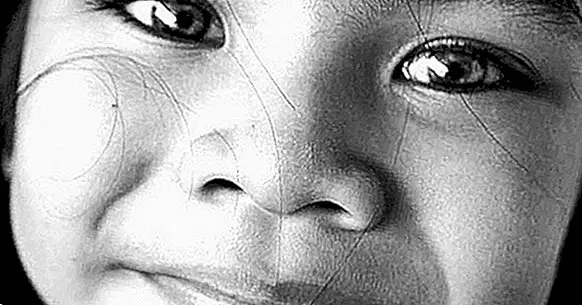How to face the hopelessness and return to the illusion
Sometimes, the events that we live seem to go hand in hand with a teaching: nothing can go better. This belief is irrational, but despite being aware of it we accept it as a golden rule that perfectly describes reality. Because, Facing hopelessness is not easy ... but neither is it impossible .
In fact, as much as we believe that this vital pessimism fits completely with the way in which life unfolds before our eyes and that any more positive interpretation of what the future will be involves deceiving oneself, What we know thanks to research in psychology and neurosciences shows that this is not the case .
Although it seems incredible, the hopelessness and pessimism associated with the symptoms of depression and sadness are, like hope and optimism, ways of seeing the life that we build ourselves, and that are not given by "reality" just as it is.
The pessimistic life story
It is counterintuitive and difficult to understand at first, but despair is something that is learned, something that is born in ourselves and that is relatively independent of external events that we can not control .
That implies two things:
- The predictions we make about how our life will be depends on our mood.
- Despair and pessimism are not more "realistic" ways of looking at things.
But then ... why do we tend to think that despair is a way of seeing reality without additives, in a more honest way and alien to feelings and desires? If we find out, we tend to see optimists as "dreamers" or "people who do not have their feet on the ground," while we attribute a greater ability to see things without filters to those that are more bitter and pessimistic .
The answer has to do with a mechanism of psychological compensation that we will see now.
Compensate for hopelessness
Since we are small, we learn to see things according to the balances established between the disadvantages and the rewards. Going alone to the bathroom means that we will receive the praises of our parents; neglecting our school tasks will mean that teachers and parents get angry. Somehow, we will notice that in almost everything there is a compensation mechanism .
The hopelessness makes us notice a failure in this way of seeing reality, but not at all. On the one hand, we see that our efforts do not correspond to the results we obtain (for example, no matter how much we try to like a person this does not have to be treated better).
In more extreme cases, we note that absolutely all efforts to protect our integrity and welfare are in vain, and we can get to surrender completely. This phenomenon is known as learned helplessness.
But nevertheless, the compensation mechanism survives in the way we judge that hopelessness in itself . In some way, we conclude that pessimism is the most true way to analyze what is happening. Why? Because being pessimistic is painful, and some compensation must have.
Paradoxically, this system of equilibria that people who have lost hope discard because they believe a way of self-deception survives in their ideas, although with a difference: in their case, it only serves to produce bitterness, sadness and discomfort.
Accepting the ability to build reality
So, whether we are optimistic or have fallen into despair, our way of seeing things can never be neutral or objective.
Our brain is not made to absorb all the information of the world around us and the processes that take place in it, but it is constantly selecting relevant information through biases ... and this is not necessarily bad.
Simply, there are interpretations of what happens that are more useful than others . And pathological pessimism has no advantage in itself, so ... why assume that it offers us a more reasonable perspective of the facts?
Facing hopelessness and recovering illusion is not simply a way to feel better: it is a declaration of principles that implies using our own capacity to extract interpretations about the facts for our own benefit, instead of letting these become obstacles that They do not let us move forward. In fact, This is one of the principles of cognitive restructuring , one of the components of Behavioral Cognitive Therapies: find alternatives when reading reality.
So, if you think it would be useful to put some more illusion in your life, you can start by considering the following points.
1. Set goals
Many times, despair is the result of the lack of objectives. When there is nothing to do, emotional stagnation appears , boredom and despair, since it is assumed that nothing important or good will happen.
To get out of this dynamic, set specific and reasonable goals, such as starting a training plan or start learning on your own about a topic. In addition, it is good that you divide this plan into small short-term sub-objectives, so that you can see at once the progress you are making.
2. Surround yourself with positive people
Optimism is contagious, so being in contact with people who see things through hope is always positive and stimulating. Getting used to these social circles will give you more opportunities to experience new sensations , moments of euphoria and, in general, happiness.
3. Get out of your comfort zone
Despair is bitter, but it also has an addictive component: allows not to take on important responsibilities and not run the risk of spending moments of nervousness . However, small doses of frustration and stress are necessary to progress in certain areas of life.
For example, for a shy person it can be uncomfortable to meet new people, but after an initial moment of nervousness, the reward can be much more satisfying than the initial comfort of the comfort zone.
Therefore, it is necessary to try to force oneself to perform acts of courage that will be positive in the medium and long term.



















